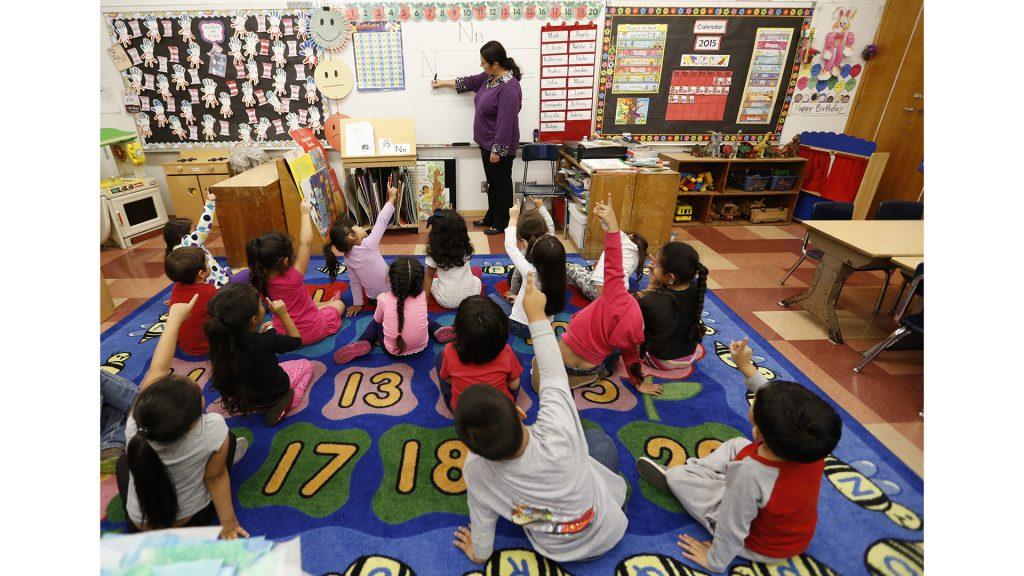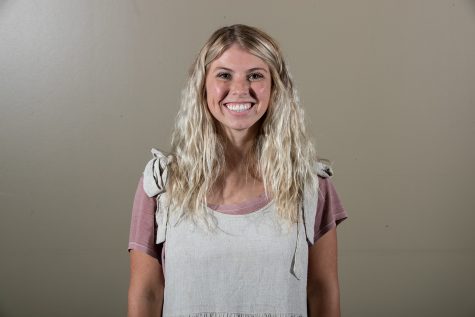Newby: Alternative schooling outgrows its stigma and reaps success
Alternative schooling does not squander success, it enables it.
National data show careful investments in high-quality preschools and small class size in elementary schools can pay off. Above, pre-K students at Dorris Place Elementary School in Los Angeles on May 12, 2015. (Al Seib/Los Angeles Times/TNS)
September 27, 2018
Excelling in various subjects and grasping concepts beyond the walls of a classroom is eagerly encouraged for students navigating the average school system. But advancing in education with confidence and perseverance is something many children miss out on because of the setup in the school systems.
One in 5 children grapple with a learning disability — whether that be something as common as Attention Deficit Disorder and dyslexia or as rare as dysgraphia, in which a child’s fine-motor skills and writing ability are affected. Learning disabilities set children at a disadvantage in the common classroom — in which their disabilities are often overlooked or underestimated by both their parents and educators.
RELATED: Newby: Investing in early childhood is imperative
According to the National Center for Disabilities, nearly half of all parents incorrectly believe that their children will outgrow these brain-based difficulties and neglect in getting them the help they need. Around 33 percent of educators say they often see people brush off learning disabilities as nothing more than laziness.
The point is: A large portion of the classroom population wrestles with learning hindrances, and when an average school day is catered solely to students who process information rapidly, easily, and without much in the way of setbacks, many children are left out. And no child deserves to be left out of a successful schooling setup.
RELATED: Guest Opinion: 2018 should be an education election
Catering to a specific type of thinking method throughout primary and secondary school can be detrimental to students who ache for a more hands-on experience or who need the material described in different yet detailed ways — or who, mostly, have trouble comprehending information splayed out in the manner set before them in an ordinary classroom setting.
When alternative schooling began springing up across the country, a certain stigma formed surrounding the system. Ideas flung around about the students who attended such schools, held they should be considered lesser, unable, unequipped, or even unteachable.
Suddenly, it was impossible to send a child to an alternative school without them feeling insecure about their abilities. Just because children process information differently, or even handle material in uncommon ways, doesn’t mean they are inadequate or should be pushed into a position of feeling like a failure.
Alternative schooling deserves to be celebrated, and so do its students. Finally, a place in which the youth can go to grow and discover education in a way accessible and helpful to them. It’s a space in which there’s more room to ask questions in which there are alternative curricula based on students’ specific needs.
Branching out to cover certain areas of subjects, circumstances, and specialties, alternative schooling paves a way for its population of students to thrive in whatever atmosphere best suits them. By bringing in certified teachers and brilliant staff, children are offered the side-by-side help that often ensures a more than successful future.
It’s more than a good thing for students to be guided throughout their education in the ways most beneficial to them. Helpfulness and understanding cultivated in the classroom can steward academics into a place of personal growth — and even encourage positive social skills.
“In Iowa, alternative education is a perspective, not a procedure or a program. It is based upon a belief that there are many ways to become educated, as well as many types of environments and structures within which this may occur,” says the Iowa Department of Education.





















